Nestled in the eastern Himalayas, Bhutan is an enchanting country known for its stunning scenery and vibrant culture. It is also one of the three nations in the world to have achieved carbon negativity, alongside Panama and Suriname. With a population of around 750,000, this small country is a global leader in sustainable development. Its focus is preserving its natural environment while improving the lives of its citizens.
In this article, we will explore why Bhutan is a must-visit destination for eco-conscious travelers. We will examine the country’s unique culture, breathtaking places to visit, and its commitment to sustainability.
So, let’s dive in.
Bhutan’s Environmental And Social Commitment
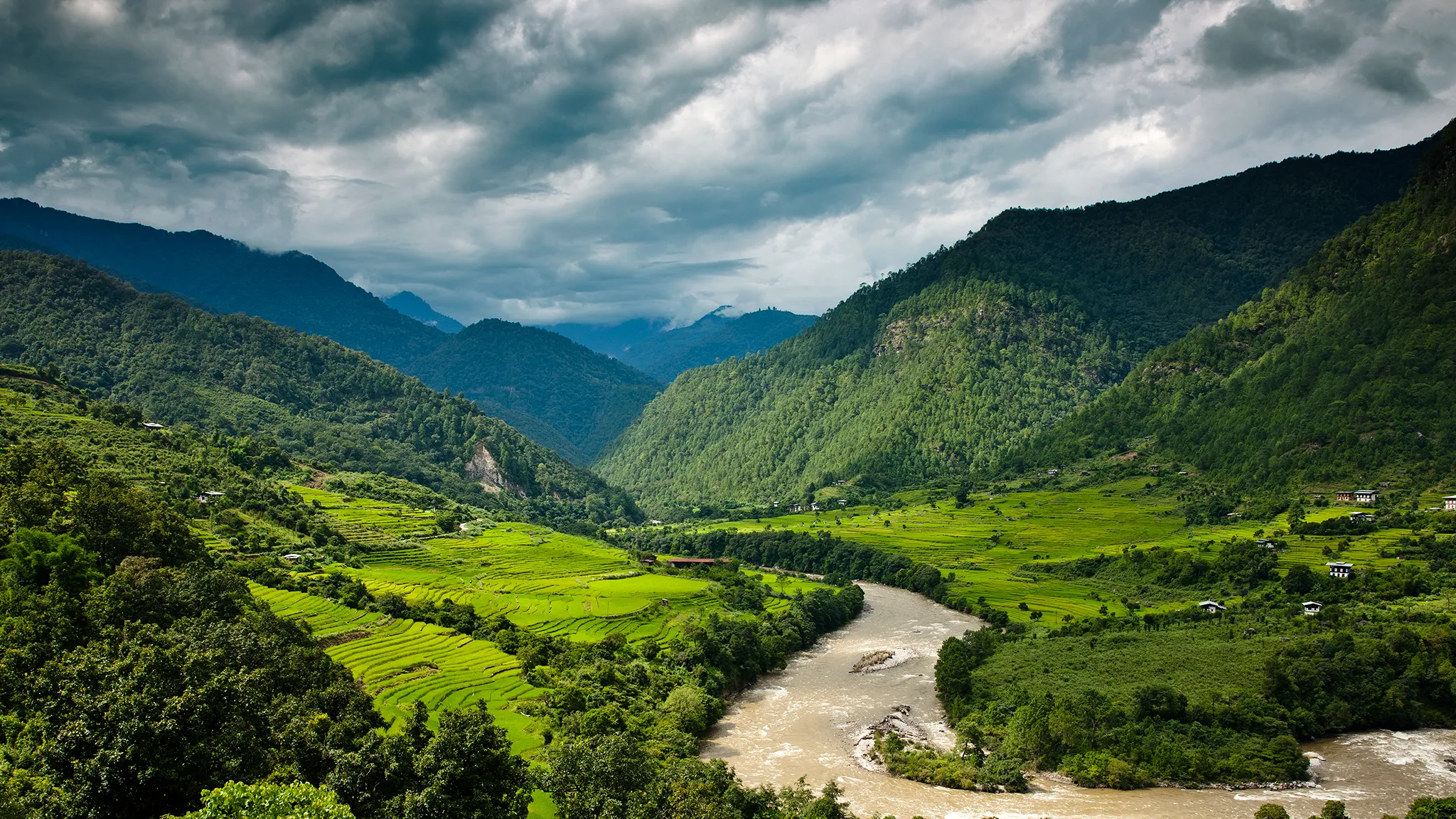
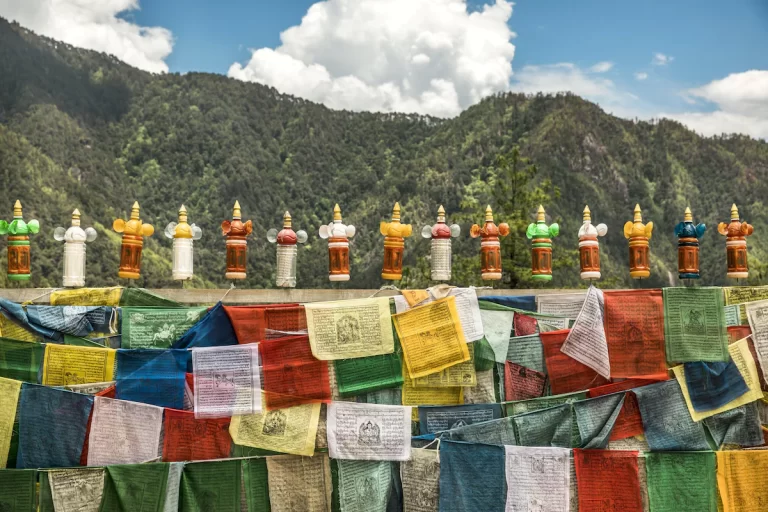
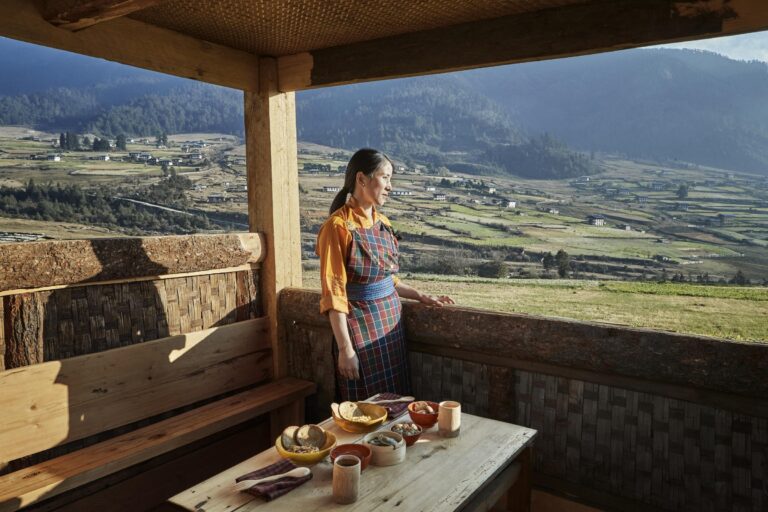
Bhutan’s commitment to the environment is truly remarkable. As one of the world’s only carbon-negative countries, it’s clear that Bhutan takes its responsibility to protect the planet seriously. But their environmental commitment goes far beyond just reducing carbon emissions.
The Bhutanese government has made conservation a top priority. They’ve implemented policies that protect Bhutan’s pristine ecosystems, biodiversity, and natural resources. From the Himalayan peaks to the lush forests and rivers, Bhutan’s stunning natural beauty is a testament to its dedication to sustainable development. Whether you’re an avid nature lover or just appreciate the beauty of the great outdoors, Bhutan’s environmental commitment will leave you in awe.
In addition, Bhutan’s development philosophy is unique and focuses not just on environmental sustainability but also on cultural preservation. This philosophy relates to the concept of Gross National Happiness (GNH). The well-being of citizens and the environment are at the center of policy-making. Bhutan has achieved a delicate balance between modernization and cultural preservation. In fact, its commitment to social equity is reflected in the country’s high levels of education and healthcare, low levels of inequality, and a peaceful environment.
Bhutan’s Carbon-Negative Status: How the Country Achieved its Environmental Goals
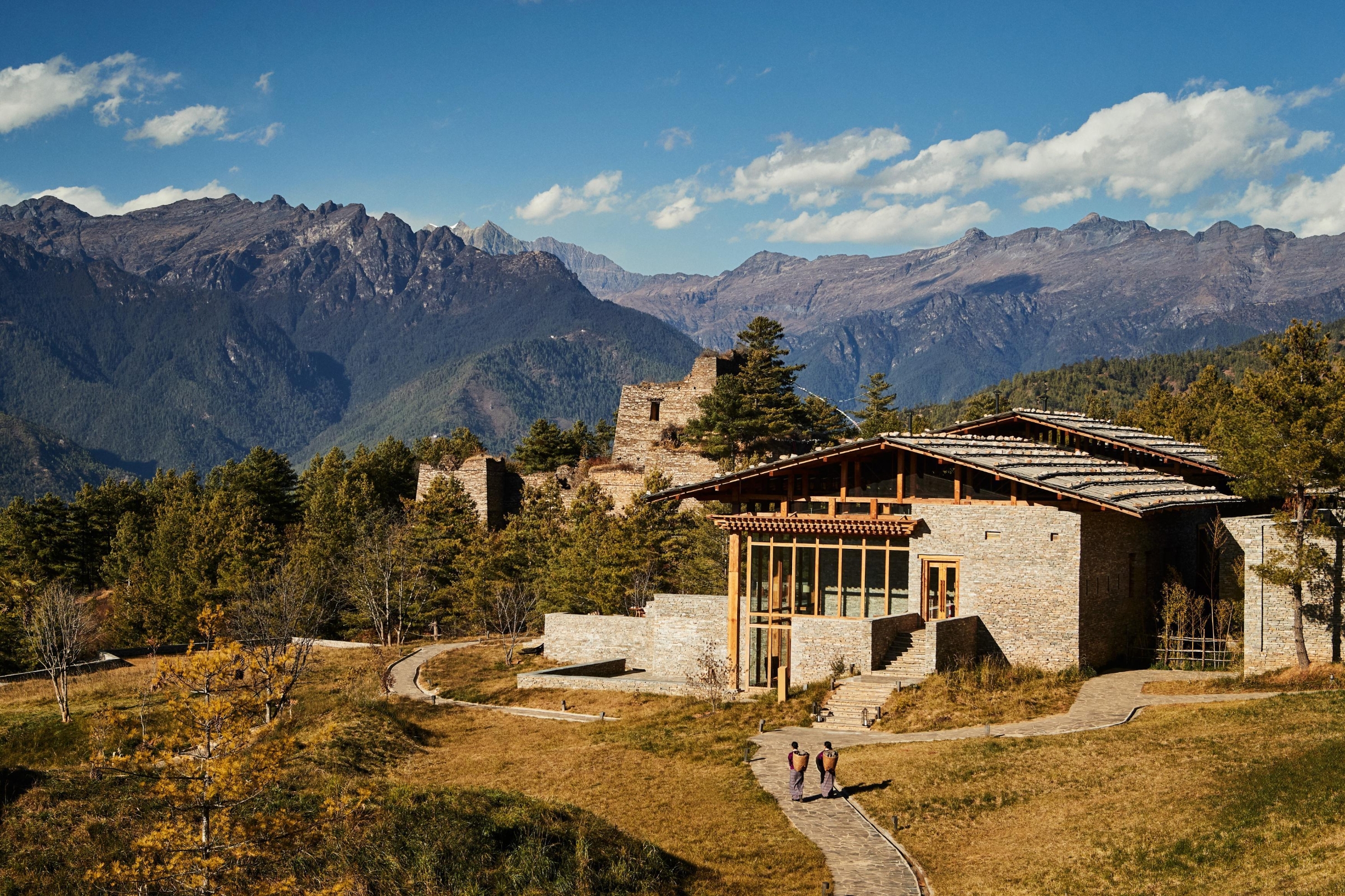
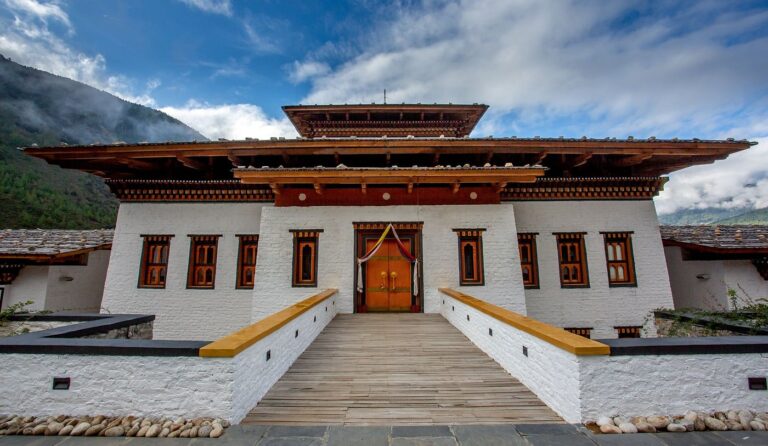
It is worth noting that the country has implemented a number of measures to preserve its natural resources and reduce carbon emissions. For example, Bhutan has a strict forest conservation policy that requires forests to cover at least 60% of the country’s land area at all times. This has helped the country maintain its forest cover at around 72%, one of the highest in the world.
Additionally, Bhutan has committed to a “zero waste” policy by 2030. They’ve implemented a comprehensive waste management system focusing on reducing, reusing, and recycling waste. The government has also banned plastic bags and implemented a tax on plastic packaging to discourage their use.
Another notable initiative is Bhutan’s focus on organic agriculture. The country has forbidden the use of pesticides and chemical fertilizers and is working to increase the production of organic crops. This not only protects the environment but has also improved the health and well-being of farmers and consumers. Furthermore, the country is investing in renewable energy sources such as hydropower, which currently accounts for almost all of the country’s electricity generation.
Discovering the Must-See Places and Activities in Bhutan
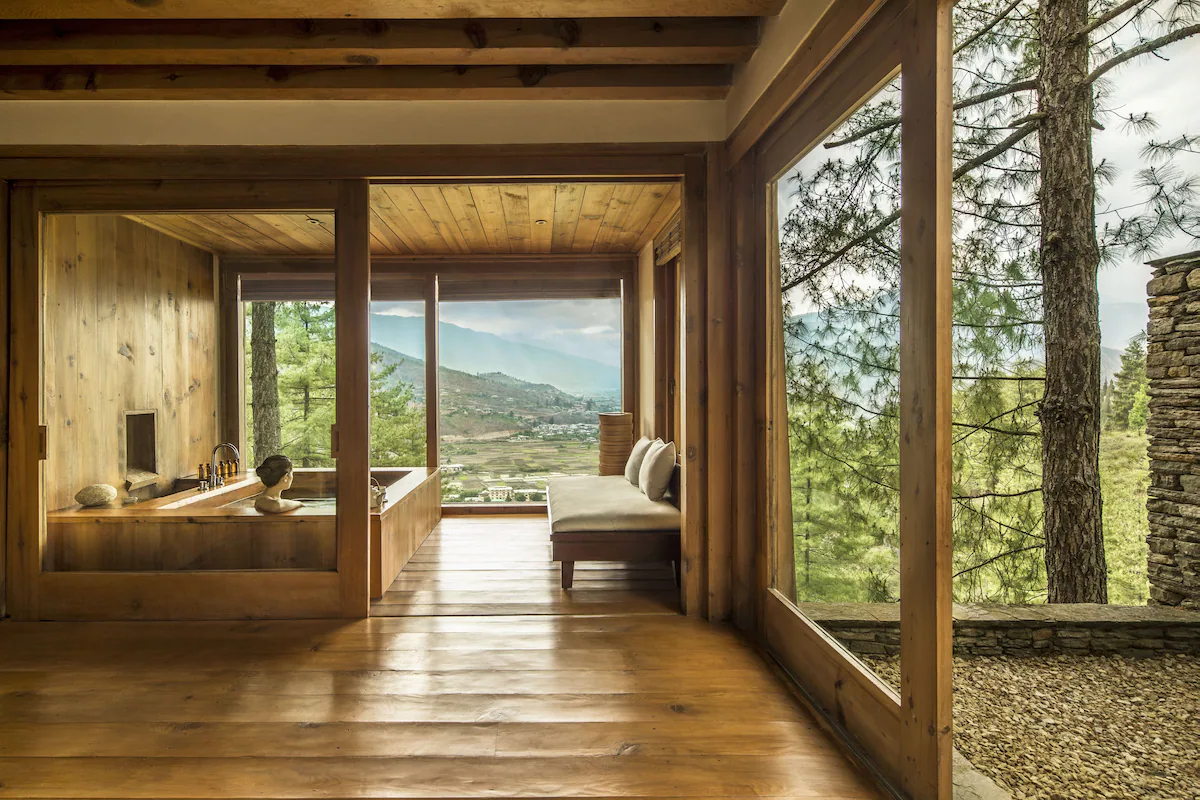
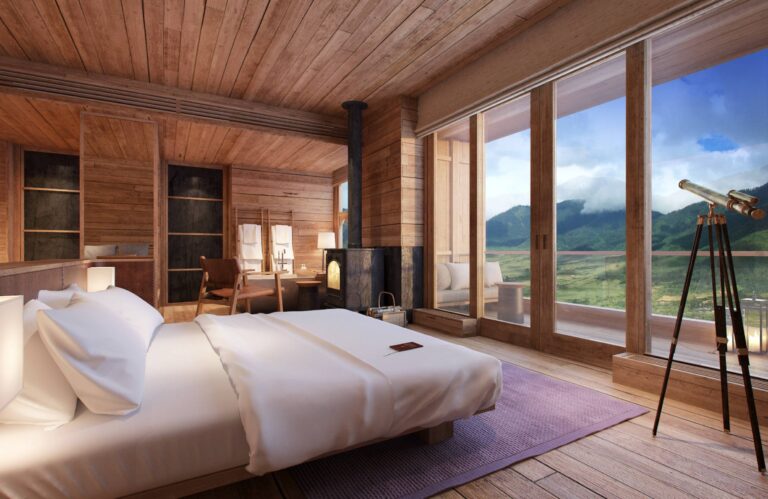
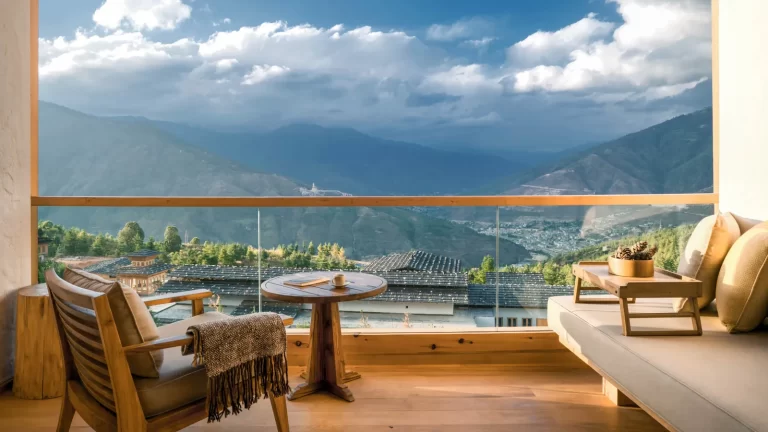
Bhutan is a country that offers a unique blend of cultural and natural attractions. One of the must-see places is the Paro Valley, where you can stay at the luxurious Como Uma Paro resort. It is the home of the iconic Paro Taktsang, also known as the Tiger’s Nest Monastery. This sacred Buddhist site clings to the side of a cliff and provides breathtaking views of the valley.
An hour’s drive away, we find Thimphu, the biggest city in Buthan. Thimphu is a citadel of traditional Bhutanese art, architecture, and culture. Here you can have an immersive experience in the heritage of this country. If you want to visit this city, choose to stay at Six Senses Thimphu Bhutan. It sits atop a blessed hillside that offers magnificent views of the glimmering lights of Thimphu.
Another popular destination is the Punakha Dzong. It’s a stunning fortress that sits at the confluence of two rivers and is considered one of the most beautiful Dzongs in Bhutan. For nature lovers, the Phobjikha Valley is a must-visit. It is the winter home of the endangered black-necked crane and offers a unique opportunity to observe these magnificent birds up close. Bhutan is also home to several national parks, such as Jigme Dorji and Royal Manas, which offer a chance to explore the country’s pristine wilderness.
Traveling to Bhutan is a unique experience that offers an authentic glimpse into a country that has remained relatively untouched by the modern world. The country’s commitment to preserving its environment and culture, coupled with its unique development philosophy, makes it a truly special destination. Whether it’s exploring ancient temples and monasteries, embarking on a challenging trek through the Himalayas, or simply enjoying the breathtaking scenery, Bhutan has something for everyone.
Sustainable Accommodations in Bhutan
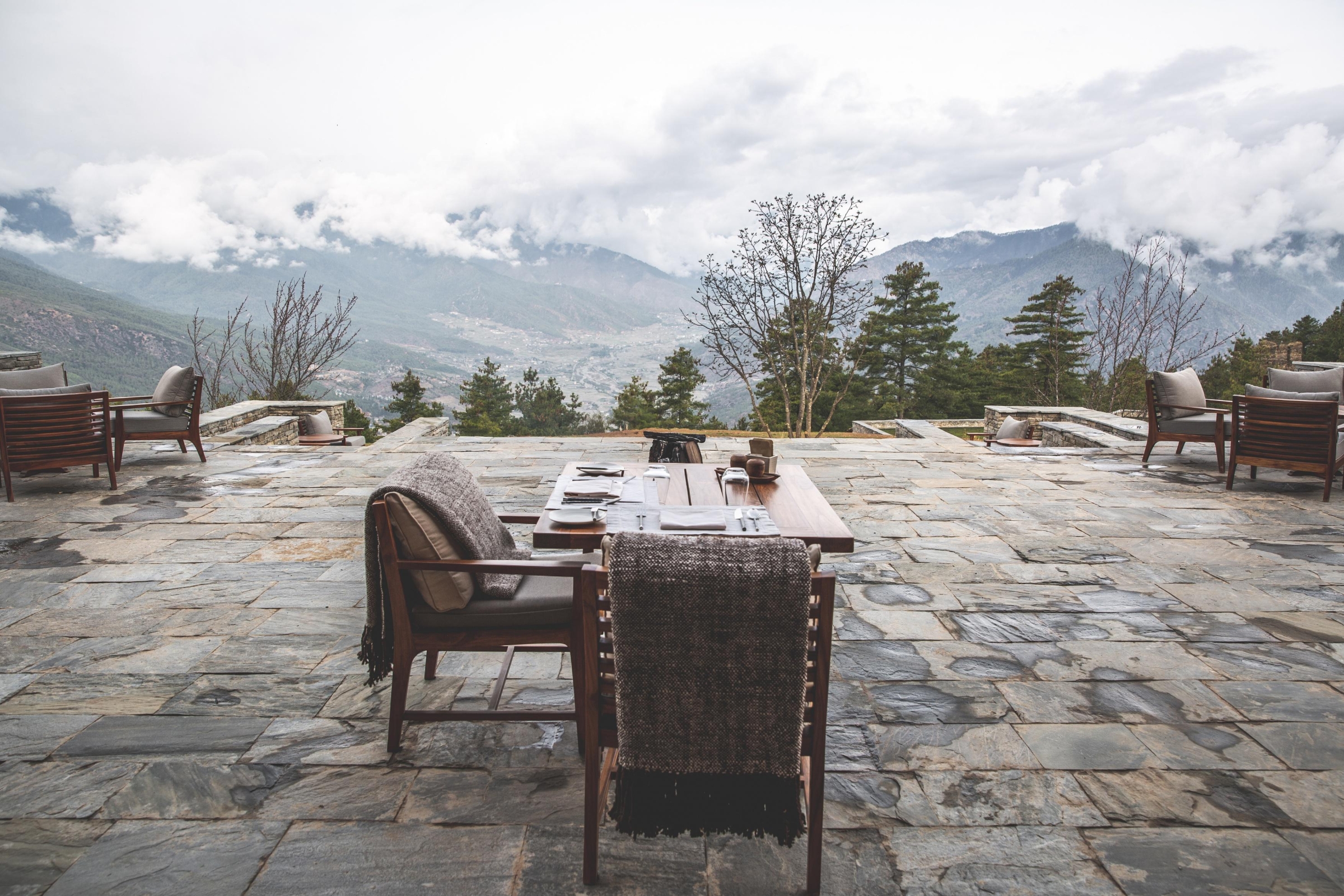
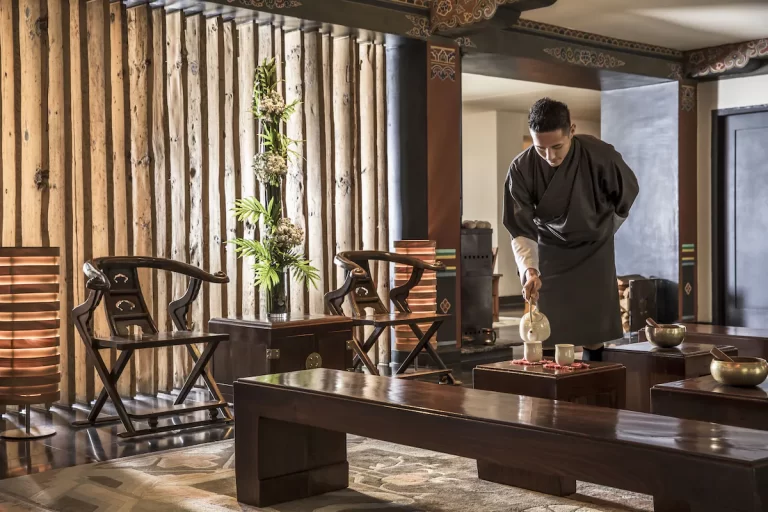
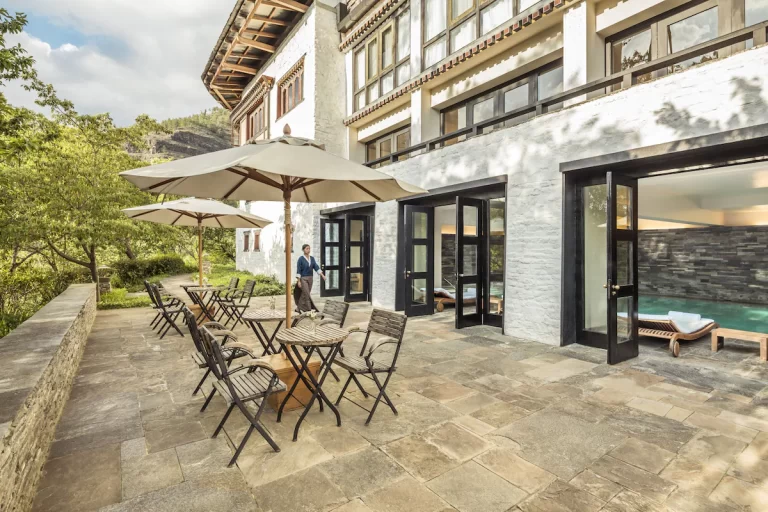
Bhutan’s commitment to sustainability extends beyond its environmental practices: it also carries over to its accommodations. Travelers can experience the country’s natural beauty while also enjoying eco-friendly amenities at several sustainable resorts.
One example is Gangtey Lodge, located in the Phobjikha Valley. The resort was built using traditional Bhutanese architecture and materials and uses solar energy for heating and hot water. Amankora, located in Paro, also prioritizes sustainable practices, such as using locally sourced materials for construction and furniture.
Another option is Como Uma Punakha, situated in the Punakha Valley. The resort has implemented a range of sustainable practices, including a focus on organic food and energy-efficient lighting. And for those looking for something new, the Punakha River Lodge is set to open in September 2023. The lodge will feature sustainable design and practices, such as using locally sourced materials and implementing a rainwater harvesting system.
If you have a more spiritual attitude, you absolutely have to visit the Eutok Goenpa monastery across from the Bhutan Spirit Sanctuary. This is the first and only 5-star traditional spa-inclusive resort in Bhutan.
Planning Your Sustainable Trip to Bhutan

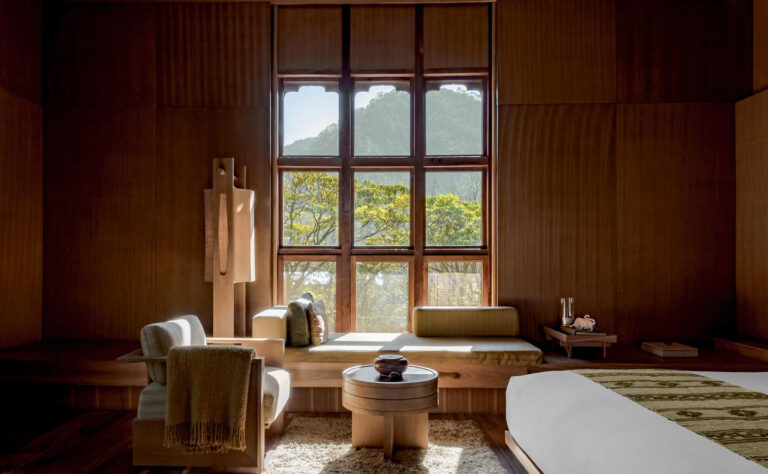
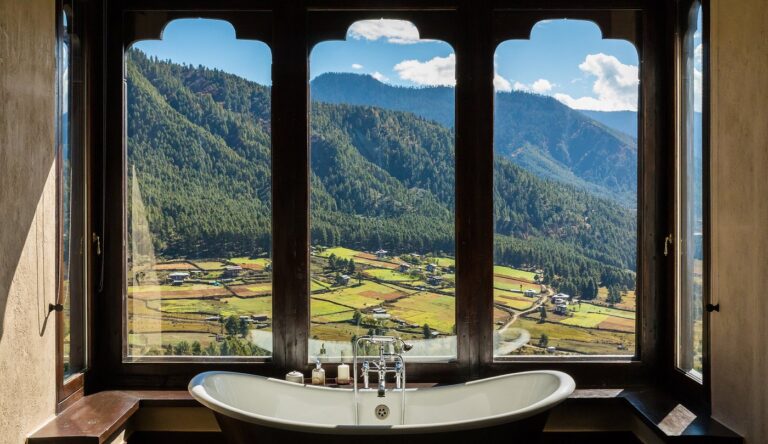
If you’re considering a trip to Bhutan, it’s important to plan ahead with sustainability in mind. Start by researching eco-friendly accommodations, such as the ones we mentioned earlier. Be mindful of your transportation choices, opting for shared vehicles or public transportation when possible. Respect local customs and traditions, and be mindful of waste and energy consumption.
When packing, bring reusable water bottles and bags, and aim to leave no trace behind. Consider offsetting your carbon emissions through reputable organizations, like the Bhutan Trust Fund for Environmental Conservation. With thoughtful planning, you can enjoy a sustainable and rewarding trip to Bhutan.
Bhutan offers a truly immersive and responsible travel experience. And remember: when planning your trip, be sure to consider the country’s limited tourist quota. So, at this point, add Bhutan to your travel bucket list and embark on an unforgettable sustainable adventure in the land of the Thunder Dragon.
P.S. Did you know?
The “Thunder Dragon” is a significant figure in Tibetan and Bhutanese mythology and the national symbol of Bhutan. This dragon appears in the flag of Bhutan, holding jewels, which are meant to represent wealth. In Dzongkha, the Bhutanese language, the country is called Druk Yul, and Bhutanese kings are called Druk Gyalpo, or “Dragon King.”

